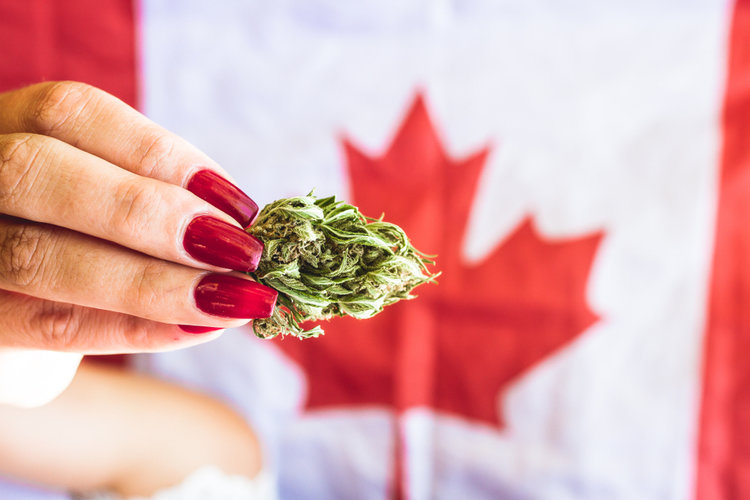Trudeau says pot will be legal by Oct. 17, 2018
Justin Trudeau announced that recreational marijuana is now legal in Canada, starting Oct. 17, 2018.
Trudeau told reporters that the legalization of cannabis will not take effect as early as envisioned by the House of Commons because provinces need additional time to get their physical and online stores up and running.
“Producers also need time to prepare for the successful implementation of this regime,” he said. “We hope it will be a success in the way we envisaged.”
The federal government was primarily responsible for dismantling key aspects of the Criminal Code to give way for Canadians to freely and legally take possession, consume or sell marijuana to adults.
After the federal government passed the law legalizing marijuana, it passed on the baton to the provinces and territories, which will implement and enforce the laws.
Each province will take its own approach as far as the implementation of the laws is concerned. Some provinces seem better prepared than others at this point. For instance, New Brunswick has already built a cannabis retail store, while Nunavut just passed its legal framework on Tuesday.
Provinces have 17 weeks to prepare for the full implementation of the law before the government’s set date of October 17th, 2018.
Trudeau said at least three big provinces requested for more time to get their systems up and running, effectively pushing the effective legalization date further.
Although the Senate has essentially passed the law to legalize cannabis consumption, Justice Minister Jody Wilson-Raybould warned Canadians that they should not light up their joints before the aforementioned effective date.
The Senate made history on Tuesday after it emphatically voted for the contentious Bill-C45 by a 52-29 vote, with only two abstentions.
Wilson-Raybould asserted that marijuana for non-medical use was still illegal until October 17th. “The law remains the law.” She added that Canada’s legalization approach is a replacement of a failed model that enriched criminals and put children at risk.
After the effective date, adults in Canada will be able to buy fresh or dried cannabis, seeds for cultivation, plants or cannabis oil from licensed retail locations, which will be a mix of government-run and privately-owned, depending on the province. Online sales will become available as well.
They can also legally own up to 30 grams of dried cannabis, share their cannabis with adults, or even plant a maximum of four cannabis plants in their homes. Additionally, they can prepare different types of cannabis products.
Timeframe coming soon
Initially, the government had floated July 1st as the effective date for retail sales to commence. This timeline was further pushed back as senators continued to debate the bill.
To set up a distribution system that allows producers to take their products to government-run stores or private retailers, the government believes this process itself could take weeks. Additionally, a well-functioning distribution system means that employees will have to be hired and trained, and this essentially means retail sales cannot happen as soon as envisioned.
According to Wilson-Raybould, the government had strengthened laws on drug-impaired driving, through the Bill-C46, which was also passed by the Senate on Wednesday.
While the government says it will allow for mandatory roadside driving checks, the Minister of Justice reminded Canadians that if they drive under the influence, they are liable for prosecution.
The Minister of Justice brushed aside the question of whether Canada was considering to pardon convicts of cannabis-related offences, terming the questions as “premature”.
“We’re working hard to repeal the existing legislation and to replace it with a comprehensive system of regulatory control,” she said. In the meantime, the NDP has made known its intentions to push for “pot amnesty”.
No plan to challenge provinces
On Tuesday, the Senate went on record to vote on the 46 amendments proposed for the Cannabis Act.
Thirteen of those were rejected by the Liberal government. And one of those rejected sought to allow provinces to ban home cultivation. The provinces that intend to ban home cultivation include Quebec, Manitoba and Nunavut.
Wilson-Raybould said that the government was not interested in challenging provincial laws, and confirmed that there’s a “framework” provided by the bill. However, she noted that any resident was at liberty to challenge a province that bans home cultivation.
“This is federal legislation that we support. It’s incumbent upon us to defend it,” she said in March when she appeared before a committee.
The opposition on home cultivation seems to be picking pace after Quebec Premier Philippe Couillard said that his government was keen on challenging the federal laws on home cultivation.
“We believe we have full jurisdiction over home growing and distribution,” he said, adding that it was a shame for the government as it clearly failed to follow Senate advice on home cultivation.

